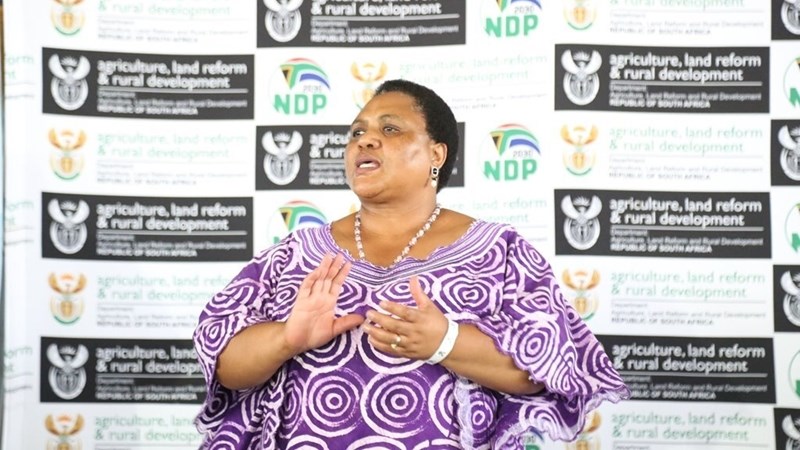Agriculture
Economist highlights 5 key trends in agriculture in 2023─── ELSABÉ RICHARD 07:48 Mon, 09 Jan 2023

The growth figures for 2022 are yet to be released and will provide an overall picture of how the agricultural sector performed after two years of solid growth.
The chief economist at the Agricultural Business Chamber of South Africa, Wandile Sihlobo, shares that in 2020, agriculture grew by 14.9% while it grew by 8.8% in 2021.
See PODCAST below
Sihlobo adds that South Africa's agriculture will likely have a downbeat start into 2023, and that the gross agricultural value added for 2022, will probably show a mild contraction.
This is due to mild declines in critical crop harvests such as maize, production challenges in the sugar industry, trade friction in fruits, vegetables, beef and wool, and widespread foot-and-mouth disease weighed on the sector's performance.
5 key trends for 2023
Intensified discussion about the need for the expansion of export markets
Sihlobo says South Africa is an export-orientated country and exports about 50% of what is being produced in the agriculture sector in value terms.
“Organised agriculture groupings and the government are looking to expand the export markets. They’re taking to China, South Korea, Japan, the US, India, Vietnam, Taiwan, Saudi Arabia, Mexico, the Philippines and Bangladesh…
"[These are] key countries to watch and I think they’re going to be important for fruits, wine, beef and grains."
Land reform
Sihlobo explains that from 2017 until 2020, there was a lot of talk focusing on expropriation. In 2022, the focus was shifted to the Expropriation Bill.
This year, Sihlobo is of the opinion that discussions will focus more on “what we call the agriculture development and land reform agency, which could focus on land redistribution.”
Deterioration of municipalities
Sihlobo says that issues regarding the deterioration of municipalities can be linked to issues in the network industry, such as roads, rail, water, electricity and ports.
“This is something that is going to be longstanding. And I think it also connects with the first point about the export activity because you need this to be fully functional for us to have a growing sector that can also participate effectively in the export markets.”
Growing unease about the slow progress in agriculture regulation
Sihlobo highlights the dysfunctional state of veterinary services and the need to modernise Act 36 of 1947, which is responsible for fertilisers, farm seeds, agricultural remedies and the stock remedies act.
He says the government needs to look at how the act could be updated and the office is well capacitated in order for South Africa to continue to import some of the “cutting edge technologies that will boost productivity in South Africa’s agriculture.
“The issues around the registrar’s office, capacity and backlogs [are some of] the things that organised agriculture will probably talk about…”
Agricultural finance
Agricultural finance is not discussed enough, says Sihlobo. The Department of Agriculture, Land Reform and Rural Development announced the latest blended finance scheme in collaboration with the Land Bank.
“I’m fairly excited about [the blended finance scheme] and I think that it is an important step and that it will lead to increased participation of black farmers at a commercial level.
“So, overall, I think those are the key things, at least in the first half of 2023, which will likely dominate our agenda this year.
With that, Sihlobo is of the view that if the country does not receive disruptive rainfall, agriculture will continue to perform well.













